With a consistent viewpoint, our Party and State always affirm that culture in general, and ethnic minority culture in particular, is an important part and a driving force for development because: "Culture... is the soul of the Nation, expressing the identity of the Nation. As long as culture exists, the Nation exists" (1). Resolution of the 5th Central Conference, Session VIII "On building and developing an advanced Vietnamese culture with strong national identity" identifies culture as the spiritual foundation of society, both the goal and the driving force for socio -economic development; Vietnamese culture is a unified and diverse culture in the community of Vietnamese ethnic groups. Resolution of the 9th Central Conference, Session XI "On building and developing Vietnamese culture and people to meet the requirements of sustainable national development" continues to affirm the viewpoint of building culture to truly become a solid spiritual foundation of society, an important endogenous strength to ensure sustainable development and firmly protect the Fatherland for the goal of a rich people, a strong country, democracy, equality and civilization; building an advanced Vietnamese culture, imbued with national identity, unified in the diversity of the Vietnamese ethnic community, with national, humanistic, democratic and scientific characteristics. The Resolution also emphasizes the task of preserving and promoting the cultural heritage of ethnic minorities, especially their languages, writings, costumes and traditional festivals; proactively seizing development opportunities, overcoming challenges to preserve and perfect the national cultural identity.
The Party's 13th Congress documents emphasize the development perspective: "Arouse the aspiration to develop a prosperous and happy country, the will to be self-reliant and promote the strength of the great national unity bloc... taking the cultural values and Vietnamese people as the foundation, the important endogenous strength to ensure sustainable development" (2), "Overcome the gap in development level and cultural life between regions, areas, and social classes, paying special attention to remote areas, areas of ethnic minorities... Pay attention to and create conditions for the development of culture and arts of ethnic minorities" (3).
Institutionalizing the Party's viewpoints and policies, in recent times, the State has issued policies to develop the culture of ethnic minorities, focusing on the following basic areas:
First, the policy of preserving and promoting the languages and writings of ethnic minorities.
The Government and the Prime Minister have issued many documents related to language education for ethnic minority areas (4)... Implementing the Party's guidelines and the State's policies on preserving the language and writing of ethnic minorities, 27/53 ethnic minorities have their own writing systems, such as Tay, Thai, Hoa, Khmer, Nung, Mong, Gia-rai, E-de, Ba-na, Xo-dang, Cham, Co-ho, Mnong... which are preserved. Some languages are used on the Voice of Vietnam , Vietnam Television, local radio and television stations, and are used to print traditional literary works, new compositions... In addition, the organization of teaching and learning ethnic minority languages is also implemented in schools in ethnic minority areas across the country. Currently, 30 provinces nationwide have implemented this with 700 ethnic minority language schools; Published 8 ethnic language programs (Cham, Khmer, Gia-rai, Ba-na, E-de, Mong, Mnong, Thai) and 6 sets of textbooks in ethnic minority languages (Cham, Khmer, Gia-rai, Ba-na, E-de, Mong). Many localities have surveyed, compiled, and collected the languages, writings, and ancient documents of ethnic groups; compiled and published books in ethnic minority languages.
Second, the policy of preserving and developing traditional cultural heritages of ethnic minority areas.
The Prime Minister issued Decision No. 1270/QD-TTg, dated July 27, 2011, "Approving the Project "Preserving and developing the culture of Vietnamese ethnic minorities until 2020" to mobilize the strength of the whole society to develop ethnic culture, contributing to making culture truly the spiritual foundation of society, both the goal and the driving force for socio-economic development, ensuring national defense - security, national territorial sovereignty, towards preserving and promoting the traditional cultural identity of ethnic minorities in accordance with the actual situation...; Decision No. 2493/QD-TTg, dated December 22, 2016, “Approving the Project on Inventory, Collection, Preservation, Display, and Promotion of Typical Traditional Cultural Heritages of Vietnam’s Ethnic Minorities in the 2017-2020 Period”, aiming to mobilize resources from the entire society to participate in preserving, conserving, and developing ethnic culture; creating a strong change in awareness and consciousness of protecting and promoting the values of cultural heritage of the entire society, cultural entities, and related organizations and individuals. Decision No. 936/QD-TTg, dated June 30, 2017, “Approving the Target Program for Cultural Development in the 2016-2020 Period”, which includes the goal of preserving and promoting the values of unique cultural heritages of the nation; Developing modern cultural works with national symbolic significance, political significance, historical significance, and unique traditions towards the strategic goal of building an advanced Vietnamese culture with strong national identity...
The Ministry of Culture, Sports and Tourism issued Decision No. 4686/QD-BVHTTDL, dated December 31, 2013, "Approving the Project on periodically organizing "Festivals, cultural exchanges, sports and tourism in ethnic minority areas" by region and nationwide for the period 2013 - 2020"; Decision No. 3965/QD-BVHTTDL, dated November 16, 2015, "On approving the Project "Program of activities, festivals and cultural and artistic performances of ethnic groups at provincial, regional and national levels for the period 2015 - 2020" (under the Project "Preserving and developing the culture of ethnic minorities in Vietnam until 2020" according to Decision No. 1270/QD-TTg dated July 27, 2011 of the Prime Minister)"... Thereby, many cultural exchange activities are held nationwide, in each region, each locality, each ethnic group, such as the annual Cultural Exchange of ethnic groups at the Cultural - Tourism Village of Vietnamese Ethnic Groups; Cultural Festival of ethnic groups in the Northeast, Northwest, Central and Southeast regions, Cultural Festival of Mong, Cham, Khmer, Muong, Dao, Hoa, Thai ethnic groups...; Festival of Then singing and Tinh lute art of the Tay, Nung, Thai ethnic groups... The quality and effectiveness of inventory, collection, preservation, display, propaganda, introduction and promotion of typical traditional cultural heritages of Vietnam's ethnic minorities have been improved. Historical and cultural relics and scenic spots in ethnic minority areas have also been scientifically documented and ranked at national and special national levels. Vietnam has many heritages recognized by UNESCO as intangible cultural heritages of humanity, such as the Central Highlands Gong Cultural Space (2008); Then practice of the Tay, Nung, Thai people in Vietnam (2019); Thai Xoe art (2022)...

The panpipe sound of the Mong ethnic group_Source: nhiepanhdoisong.vn
In addition, the Ministry of Culture, Sports and Tourism issued Decision No. 209/QD-BVHTTDL, dated January 18, 2019, approving the Project "Preserving traditional costumes of Vietnamese ethnic minorities in the current period" with the goal of preserving and promoting traditional costumes of ethnic minorities, arousing pride in the culture and traditional costumes of ethnic groups, forming awareness and motivation for cultural subjects themselves, local authorities at all levels to be aware of preserving, promoting and using traditional costumes more popularly in life.
Along with the issuance of the above documents, identifying prestigious people, village elders, village chiefs, and artisans as having a particularly important role in preserving, transmitting, and promoting the typical and distinctive cultural values of ethnic minorities, every year, the Party and State organize meetings with village elders, village chiefs, and prestigious people who are ethnic minorities, awarding the titles of People's Artists and Meritorious Artists to artisans who have made outstanding contributions in preserving and promoting the nation's intangible cultural heritage, such as folk performing arts; social customs and beliefs; folk knowledge; folk literature; language, writing; traditional festivals...
Third, the policy of preserving and promoting the fine traditional cultural values of ethnic minorities in association with tourism development.
In recent times, many localities across the country have exploited local cultural values, creating quite attractive tourism products. Some tourism development models have been formed and operated quite effectively, such as Thai community tourism in Ban Men (Thanh Nua commune, Dien Bien district, Dien Bien province) and Ban Ang (Dong Sang commune, Moc Chau district, Son La province); Dao community tourism in Nam Dam village (Quan Ba commune, Quan Ba district, Ha Giang province), Lu community tourism in Tham village (Tam Duong district, Lai Chau province)... The issue of regional linkage, cooperation between units, organizations and the application of science - technology, communication in tourism activities are increasingly focused on in activities to preserve and promote cultural values, including the tourist route "Through the Viet Bac heritage sites"; "Central heritage road", "Central Highlands green road"; "Central Highlands gong space"; “Root tourism”, “Northwest Roots”, “Highland Colors”; “Northwest Arc Tourism”... The implementation of policies to preserve and promote traditional cultural values of ethnic minorities associated with tourism development is quite effective, contributing to both restoring, preserving and promoting many typical cultural values of regions across the country, creating more jobs and increasing income; thereby, promoting the process of hunger eradication and poverty reduction in ethnic minority and mountainous areas.
Fourth, communication policy for ethnic minority areas.
A number of policies related to communication work have been issued, contributing to the dissemination of the Party's guidelines and policies, the State's policies and laws on economic, cultural and social development in general and the policy on preserving and promoting ethnic minority culture in particular to ethnic minorities and mountainous areas, such as the decisions of the Prime Minister (5). The Voice of Vietnam, Vietnam Television, local radio and television stations, press and media agencies across the country have also actively covered and improved the effectiveness of information and communication activities on ethnic work throughout the country.
Fifth, policies on information and library work to archive ancient documents, audiovisual activities, literary and artistic creations on ethnic minority topics.
The Prime Minister issued Decision No. 1558/QD-TTg, dated August 5, 2016, “Approving the Project “Preserving and promoting the value of literary and artistic works of Vietnamese ethnic minorities”. The project has surveyed, investigated, researched, collected, built a system of documents, created, published, distributed, and promoted literary and artistic works about Vietnamese ethnic minorities in the form of printed books, e-books, 3D books, documentaries, thematic films, and a digital library system.
In addition to the achieved results, the cultural policy system for ethnic minorities is still limited and not yet synchronous, not suitable for the characteristics of ethnic minority and mountainous areas, and the speed of socio-economic development. The organization and implementation of policies is still slow, not really put into practice... Investment resources to support the preservation and promotion of traditional cultural values of ethnic minorities are still limited and ineffective. Awareness of a large number of sectors and levels on ethnic minority culture is still limited. Incentive policies are not satisfactory, so the talents and dedication of ethnic minority intellectuals and folk artisans have not been effectively promoted. Policies to preserve, exploit and promote traditional cultural values of ethnic minorities in specific fields, policies to regenerate the environment, restore landscapes and living spaces of ethnic minorities have not been clearly oriented and expressed.
In the coming time, to continue to improve the policy of preserving and promoting the cultural values of ethnic minorities, it is necessary to synchronously implement the following solutions:
Firstly, raising awareness in planning, building and implementing policies to preserve and promote traditional cultural values of ethnic minorities.
The policy of preserving and promoting the cultural values of ethnic minorities must be linked to the national and ethnic development policy, the regional development policy, paying attention to comprehensiveness and specificity. The process of planning, building and implementing policies must be based on reality, on the potential, advantages, and specificity of each region, each locality, each ethnic group, and must be placed in the overall development of the nation and the nation. There must be a respectful attitude towards the cultural heritage of ethnic minorities. Strengthen activities to preserve and promote typical, characteristic traditional cultural values that are suitable to new conditions; ensure harmony between the relationship between preservation and promotion, preservation and development, especially sustainable cultural development, placed in the relationship with the socio-economy. Specify the contents of the policy on urgent preservation of the culture of very small ethnic minorities (with a population of less than 10,000 people), ethnic minorities in resettlement areas of interconnected hydropower projects, in border areas, and comprehensively connect with related programs and projects.
Second, innovate propaganda work.
In the context of globalization, international integration and the Fourth Industrial Revolution taking place strongly, the state management of culture must have changes in thinking and action. In addition to continuing to raise awareness of the role of ethnic minority culture, it is necessary to continue to invest in building and perfecting the organization of cultural management apparatus. Promote propaganda activities to raise awareness of cultural preservation and cultural management in ethnic minority areas, especially for the younger generation, to strengthen the pride, awareness and responsibility of each citizen in preserving and promoting the cultural values of ethnic minorities. Party committees and organizations at all levels need to identify propaganda work to raise awareness of cultural preservation and cultural management in ethnic minority areas as an important content in the Party's leadership of the grassroots. Propaganda tasks can be combined with preserving and promoting national cultural identity, selectively absorbing new cultural values, eliminating old customs; and opposing the "peaceful evolution" plot to cause national division, sabotage the great national unity bloc and the revolutionary cause of our Party and people.
Third, train and build a team of cadres to do ethnic work and manage ethnic minority culture, improve the effectiveness of state management of ethnic minority culture.
Focus on recruiting civil servants and public employees with proper training in expertise and profession; regularly train and update knowledge in the new situation for the team working on ethnic affairs and managing ethnic minority culture. Have a mechanism to promote the role of artisans, village elders, and village chiefs in preserving and promoting traditional cultural values in ethnic minority areas; encourage the community to participate in preserving unique traditional cultural values, preventing the risk of fading, distorting or losing. Absorb the achievements of the Fourth Industrial Revolution in cultural management, such as digitizing core data associated with the unique cultural identity of ethnic minorities; from there, it is possible to choose to post on information and communication means so that the majority of people have more favorable conditions to access, interact, and learn.
Linking the work of preserving and promoting cultural values and tourism activities with the participation of relevant parties, in which the core role belongs to cultural entities... to both create livelihoods, contribute to hunger eradication and poverty reduction, and create awareness for the community itself in selecting, promoting, transmitting and practicing typical and typical cultural values in life. That is also the basis for the sustainable development of ethnic minority culture. In addition, it is necessary to link the construction and development of culture and arts in an advanced direction, imbued with national identity and absorbing the quintessence of human culture, developing education and training, science and technology; focusing on developing cultural industries associated with cultural products and services of ethnic minorities.

Ao dai and Tay Nguyen brocade fashion show at Pa Sy waterfall, Mang Den town, Kon Plong district (Kon Tum province)_Source: nhandan.vn
Fourth, replicate cultural preservation models; build new models of preserving and promoting traditional cultural values suitable to local realities.
Identify villages, hamlets, villages, hamlets, etc. as the basic areas to preserve and promote traditional cultural values and build a new cultural life, focusing on promoting the role of the people - the creators and cultural enjoyers - those who are capable of nurturing and promoting traditional cultural values with the core being village elders, artisans and intellectuals from ethnic minorities. Implement effective cultural preservation models, popularize and replicate well-implemented cultural preservation models, and at the same time innovate and supplement models of preserving cultural values suitable to local realities. Continue to implement cultural festivals of ethnic minorities by region, national solidarity festivals in localities; build a model of private cultural museum; bring models of teaching ethnic culture into schools; Linking the organization of teaching and developing traditional crafts and folk sculpture with tourism development agencies and organizations, job promotion centers and product consumption.
Fifth, continue to effectively implement socio-economic development policies, ensuring stable life for ethnic minority areas.
Along with economic development, the State and local authorities at all levels need to pay attention to allocating sufficient resources for programs, projects, plans, and scientific research on preserving ethnic minority cultural heritage and improving the effectiveness of cultural management in ethnic minority areas; including policies to support and restore traditional festivals and traditional cultural products. Honor and have preferential policies for artisans and artists who have contributed to creating cultural works and products; popularize and teach traditional arts and professional secrets to ethnic minority areas. Support unique cultural models and pilot models in villages and hamlets; support the preservation of spoken and written languages. To increase resources for cultural development, focus on the socialization of cultural activities with the participation and close supervision of state management agencies. In the process of socio-economic development, it is necessary to pay attention to the environment and suitable space for ethnic minorities to operate, develop and create culture. Promote the proactive, responsible and critical role in implementing cultural policies. Increase the participation and consultation of researchers and experts in the cultural field to promptly propose and correct the inadequacies of some policies to suit reality./.
Associate Professor, Dr. NGUYEN THI SONG HA
Vietnam Academy of Social Sciences
----------------------------------
(1) Nguyen Phu Trong: "Strive to build, preserve and promote the unique values of advanced Vietnamese culture with strong national identity", Communist Magazine, No. 979 (December 2021), p. 3
(2), (3) Documents of the 13th National Congress of Delegates, National Political Publishing House Truth, Hanoi, 2021, vol. I, pp. 215 - 216, 144 - 145
(4) Decree No. 82/2010/ND-CP, dated July 15, 2010, of the Government “Regulating the teaching and learning of spoken and written languages of ethnic minorities in general education institutions and continuing education centers”; Decision No. 1008/QD-TTg, dated June 2, 2016, of the Prime Minister “Approving the Project “Enhancing Vietnamese for preschool children and primary school students in ethnic minority areas for the period 2016 - 2020, with a vision to 2025”
(5) Decision No. 59/QD-TTg, dated January 16, 2017, “On the issuance of a number of newspaper and magazine publications to ethnic minority and mountainous areas, and extremely disadvantaged areas”; Decision No. 1860/QD-TTg, dated November 23, 2017, “Approving the project “Piloting the issuance of radios to ethnic minority and mountainous areas, and extremely disadvantaged areas, and border areas”; Decision No. 45/QD-TTg, dated January 9, 2019, “On the issuance of a number of newspaper and magazine publications to ethnic minority and mountainous areas, and extremely disadvantaged areas, for the period 2019 - 2021”
Source


![[Photo] Hungarian President begins official visit to Vietnam](https://vphoto.vietnam.vn/thumb/1200x675/vietnam/resource/IMAGE/2025/5/27/ab75a654c6934572a4f1a566ac63ce82)

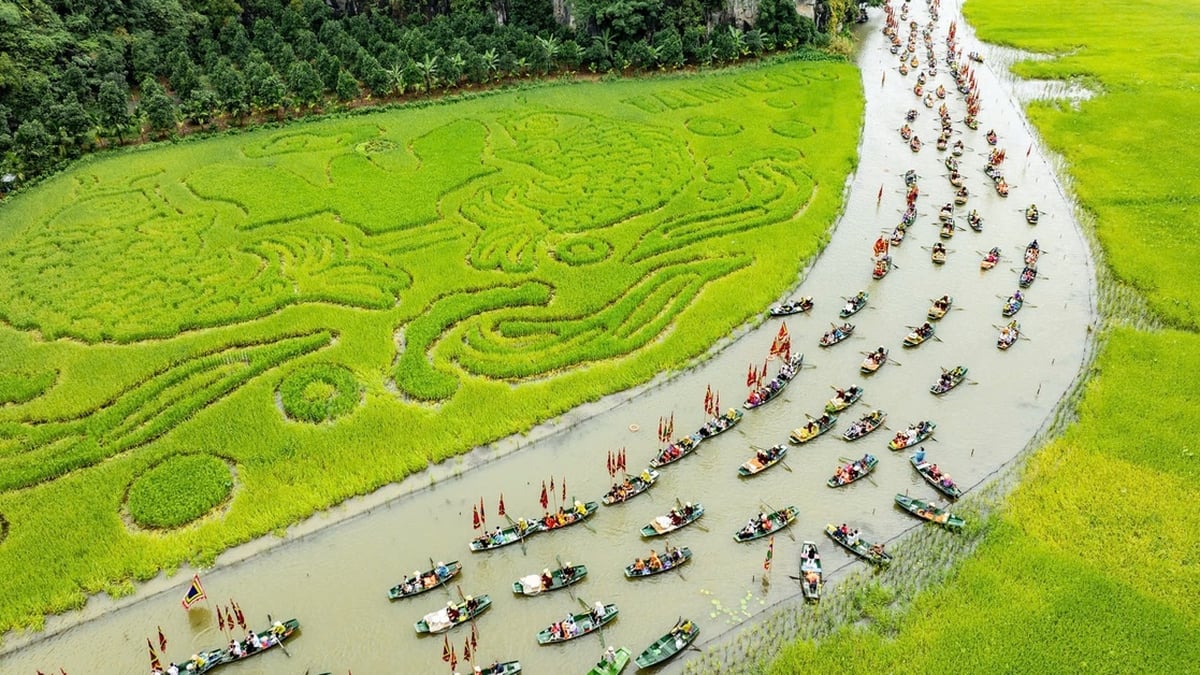

![[Photo] Vice President Vo Thi Anh Xuan, French President Emmanuel Macron and his wife visit Hanoi University of Science and Technology](https://vphoto.vietnam.vn/thumb/1200x675/vietnam/resource/IMAGE/2025/5/27/267b6f2bdf3e46439f081b49f6ec26b1)

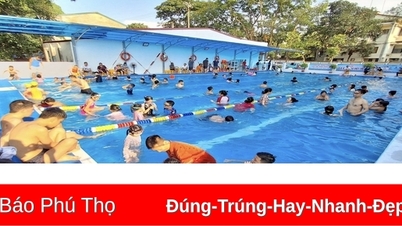





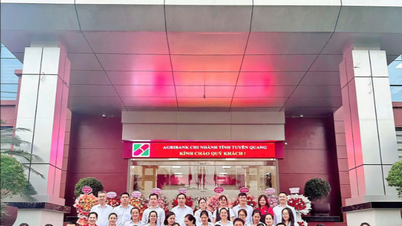

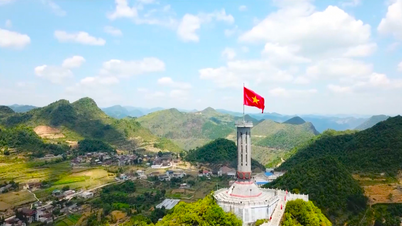
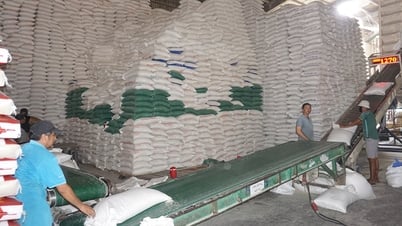

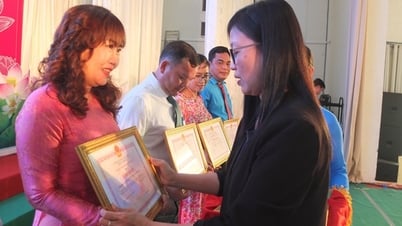
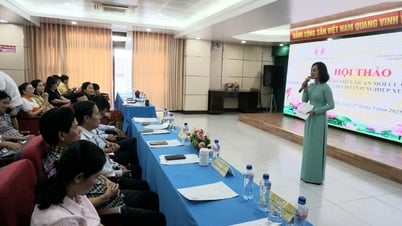
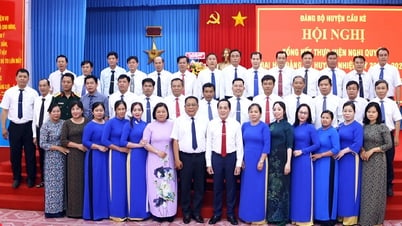
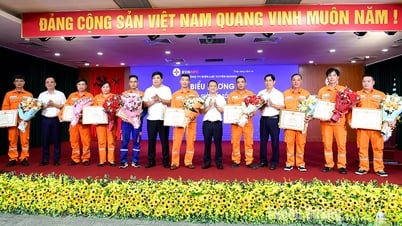





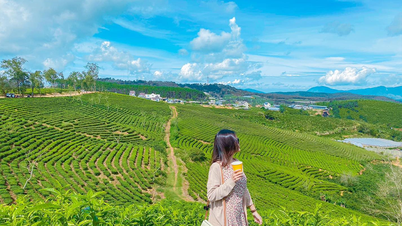


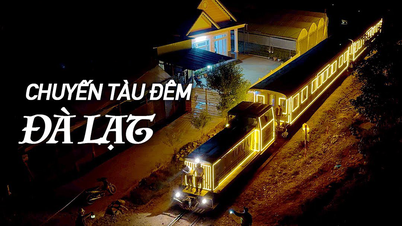

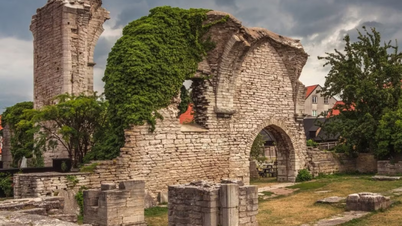
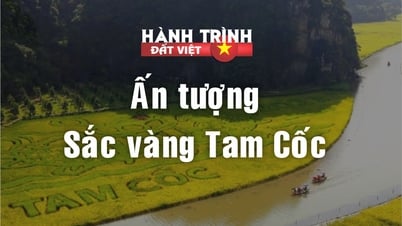

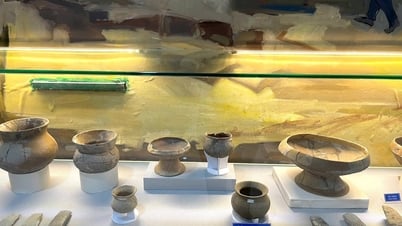

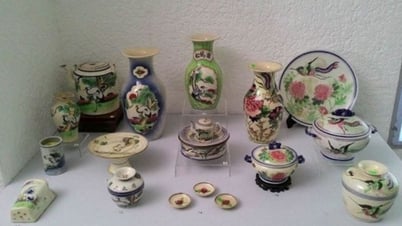

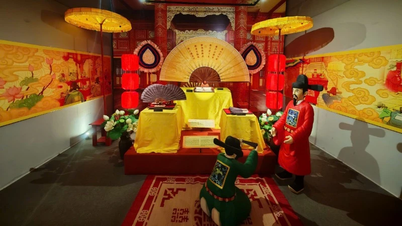

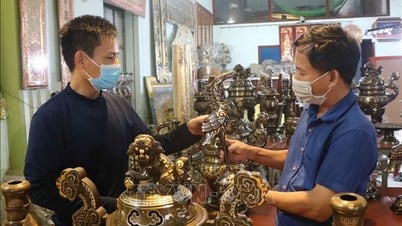
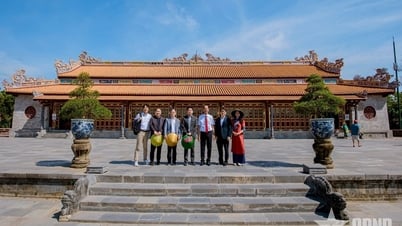



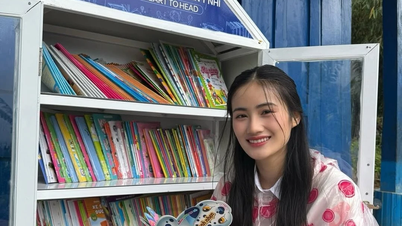

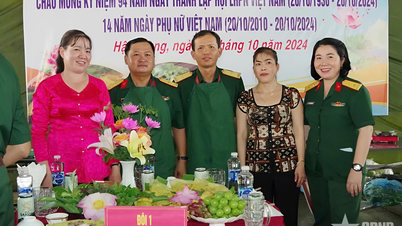


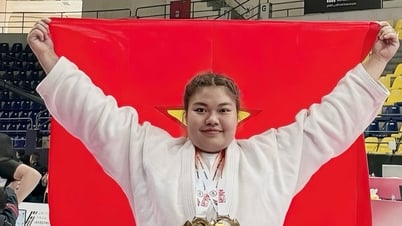


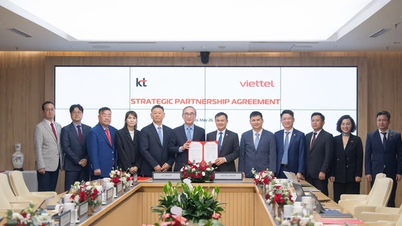
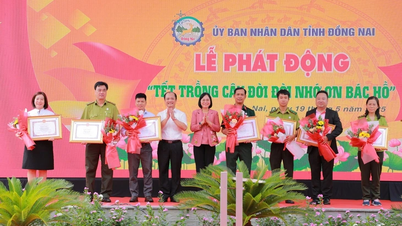
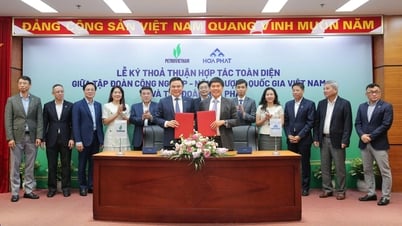


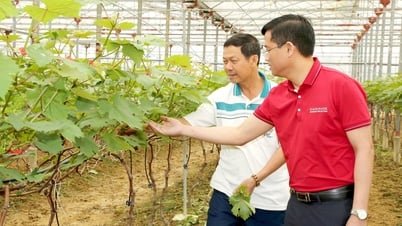


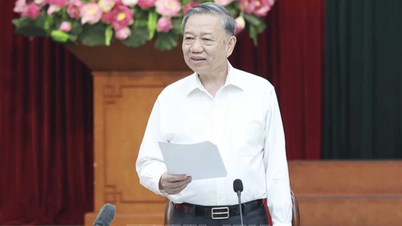


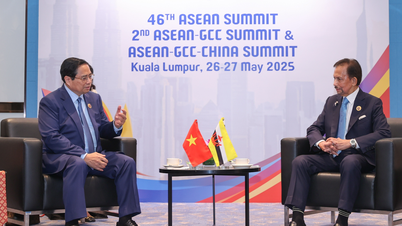





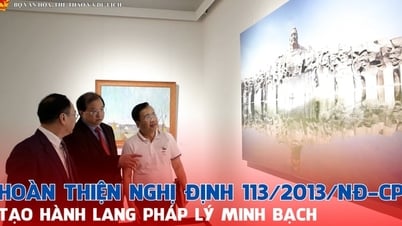
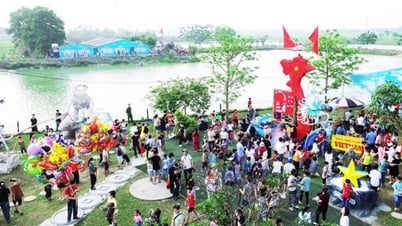


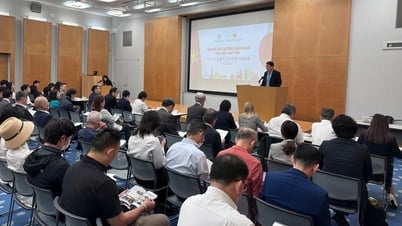
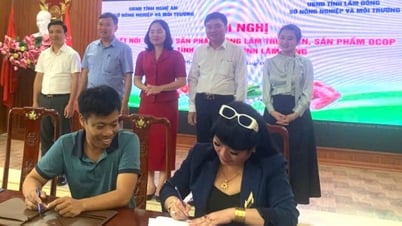

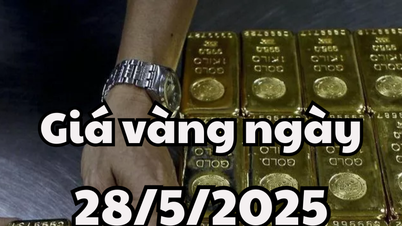

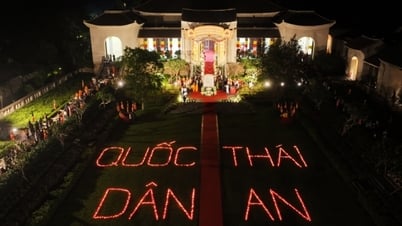



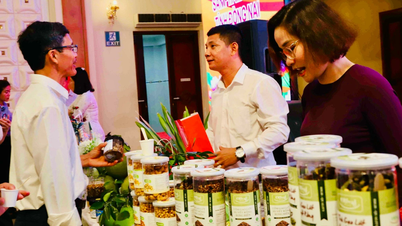

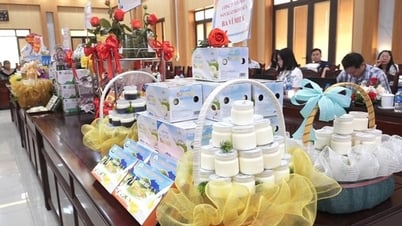

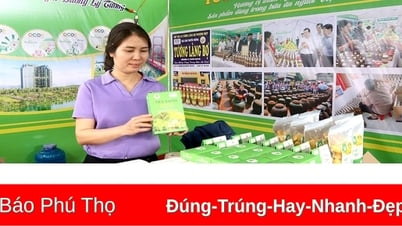
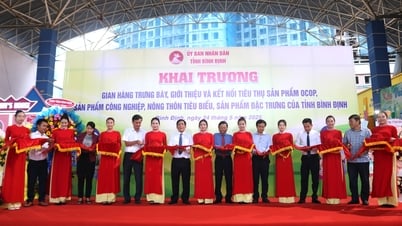



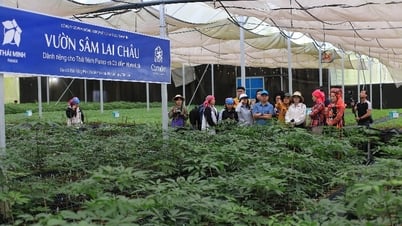

Comment (0)